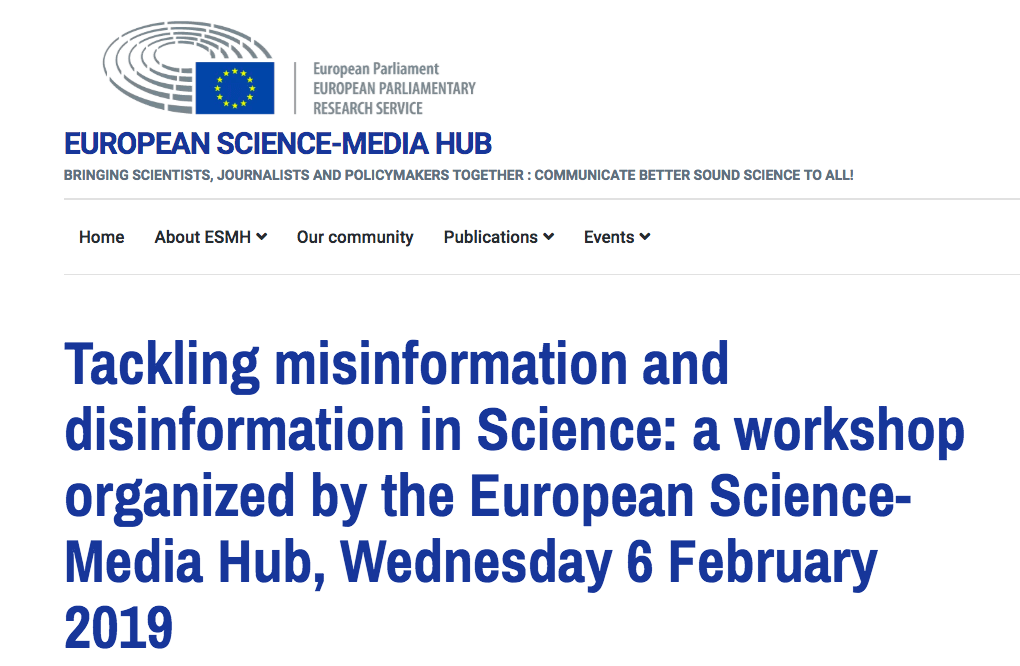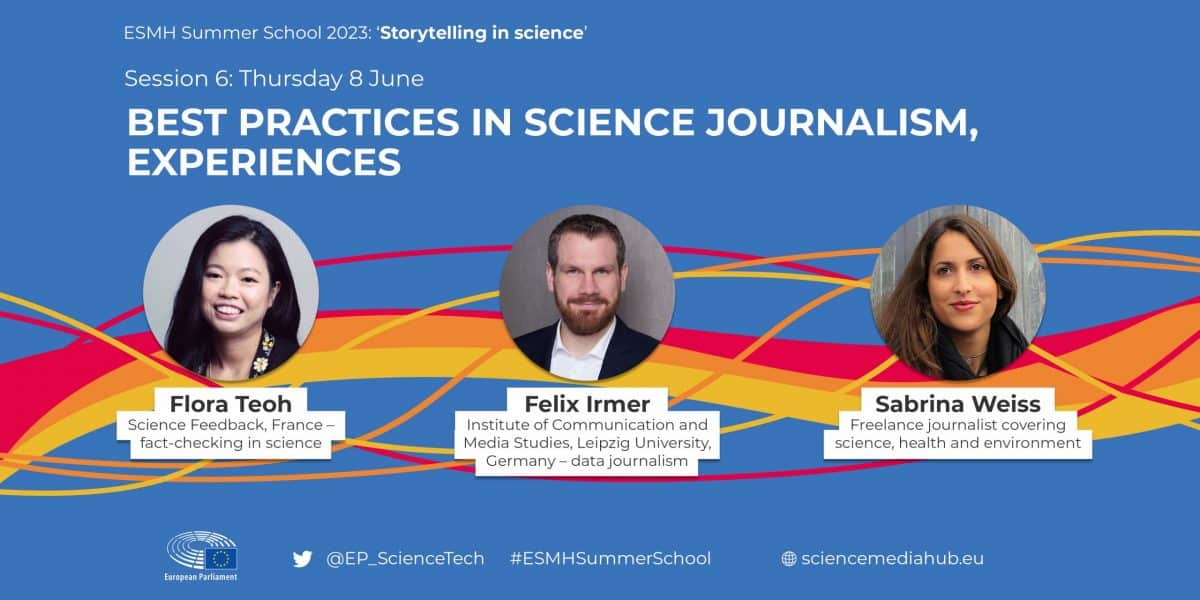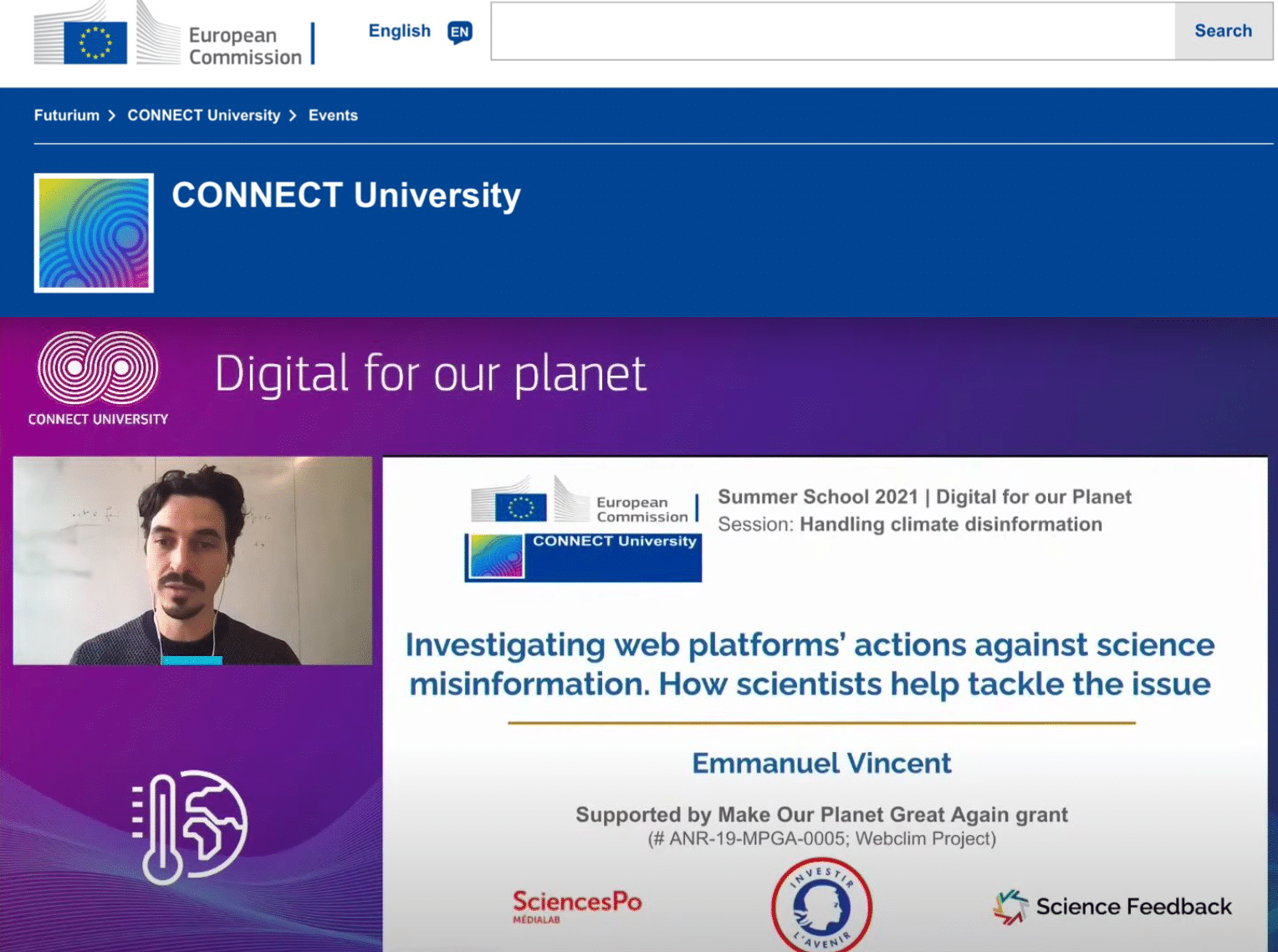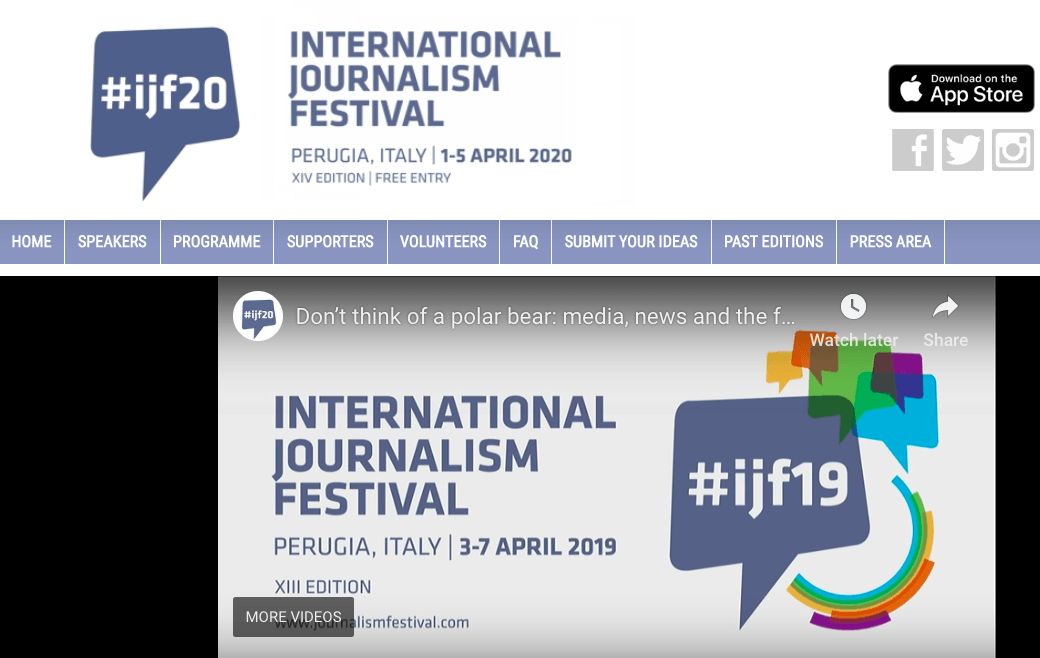European Science-Media Hub Workshop ‘Tackling misinformation and disinformation in science’

How to tackle disinformation in science? How scientists and journalists could work better together in order to prevent misinformation? The knowledge lab of the ESMH on 6th February will take a closer look at some initiatives.
The ESMH workshop will bring together journalists and scientists from several EU countries and will take place in the wider context of the ‘Science Week at the EP’ (5-7 February 2019). Selected experts will be talking to the audience about good practices in sharing quality information, via the presentation of case studies touching upon science disciplines and including some useful tools against disinformation.
Following a welcome address and opening by Eva Kaili, (S&D, Greece and STOA Chair), Scott Brennen (Reuters Institute for the Study of Journalism and the Oxford Internet Institute), will open the workshop by giving an overview of the Oxford Martin Programme on Misinformation, Science and Media, from its purpose to the main results obtained so far. The programme examines the impact of the interplay between scientific misinformation, news coverage, and social media platforms on public understanding of science and technological innovation. Since misinformation about basic issues in science and technology often abounds, the programme focuses on better understanding and ways to improve public discussions of science and technology.
Following Brennen’s intervention, it will be Guido Romeo’s turn to take the floor.This data and business journalist will talk about his brand new and ambitious project – Factful – and its focus on employing scientific methods in reporting, integrating data analysis and field work. Through open source intelligence, Factful not only promises to make science accessible to citizens and organisations to counter misinformation, but also to investigate into the working mechanisms of scientific institutions.
The workshop will then move to more concrete examples of initiatives tackling misinformation and disinformation in science.The President of the Science Feedback association Emmanuel Vincent will showcase the Climate Feedback project, an international network of scientists who review influential climate change media coverage and provide feedback to readers, journalists and editors about its scientific credibility. Science Feedback is broadening this approach to other scientific fields prone to misunderstandings or organised campaigns of disinformation (e.g. health, see HealthFeedback). One of the primary goals is to help platforms like Facebook, Google and YouTube, which act as gatekeepers of online information, to promote credible sources of information.



